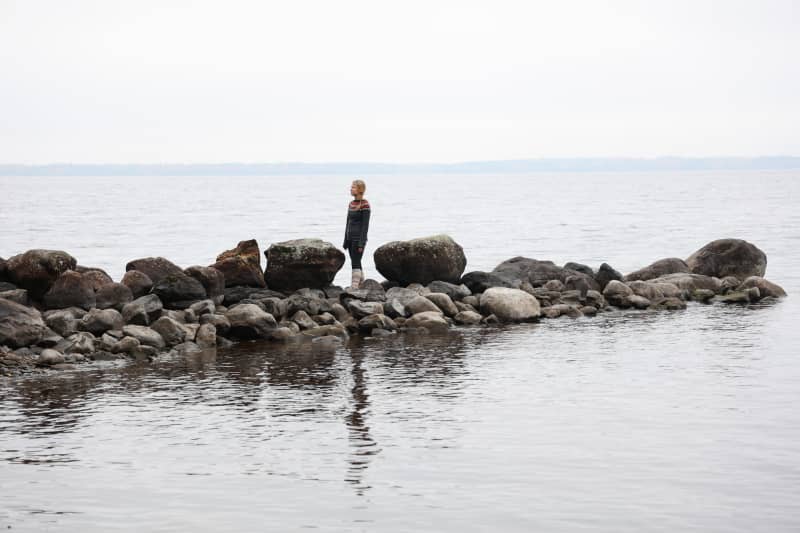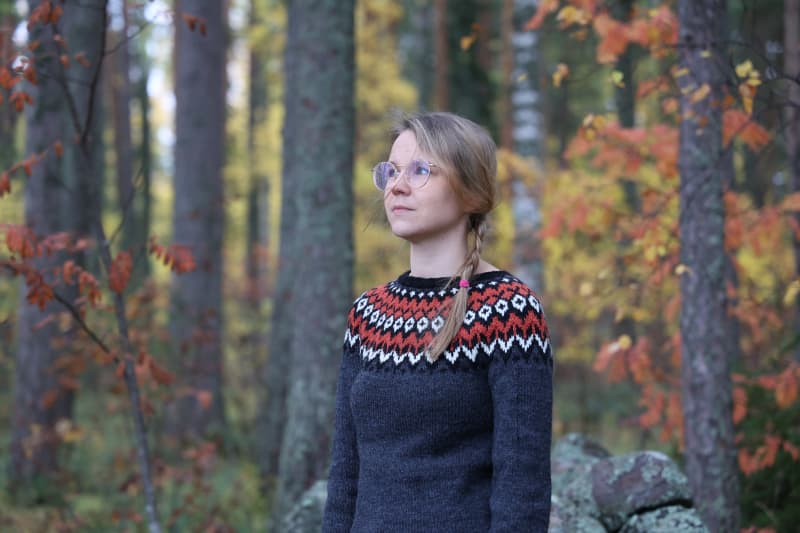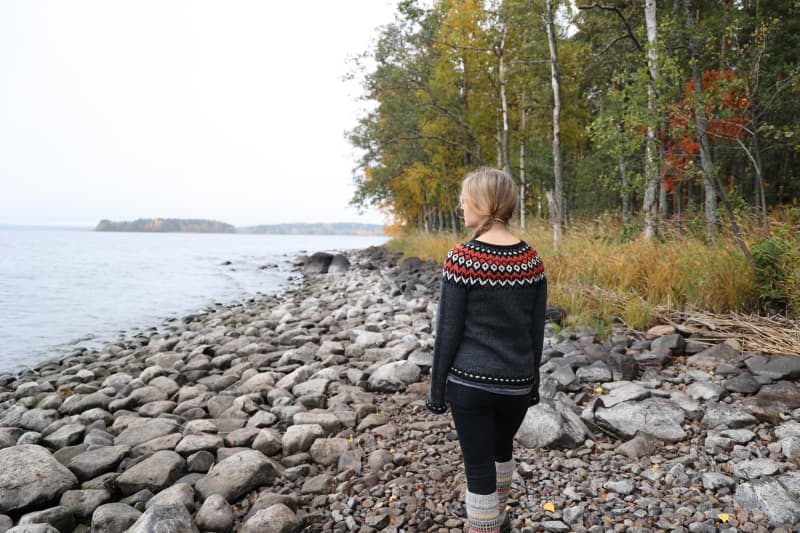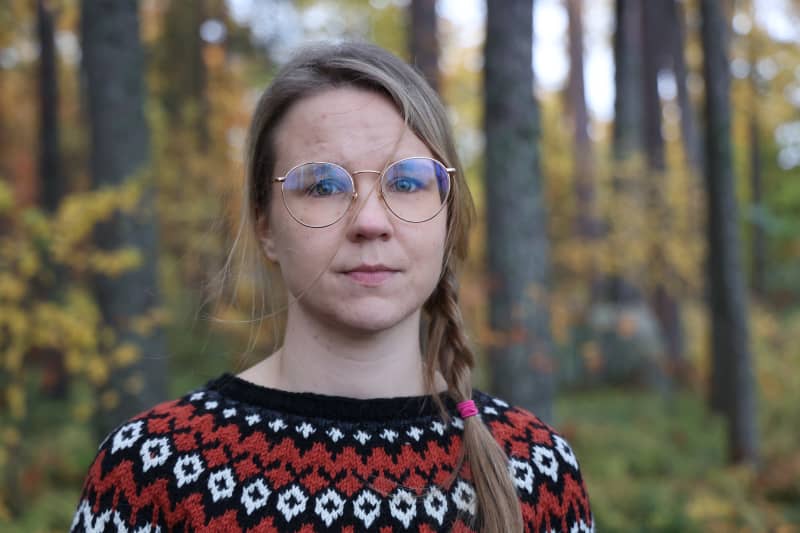Camilla Nissinen grew up in a community of Jehovah’s Witnesses, where her childhood was marked by constant fear and a sense of guilt. Now he has written a novel about his experiences.
Nissinen knew what would happen when the letter arrived. Most likely, a group of men would appear at the door, and Nissinen would change his mind again. That had already happened once before.
But this time the letter would be read in the church, and everything up to that point would be lost to the foundations. Family and friends would disappear from life. You should be able to do it alone.
That’s exactly what happened.

Camilla Nissinen, 34, left Jehovah’s Witnesses seven years ago. Now he wants to tell what it’s like to first grow up and then to try to get out of a life where you have a heavy feeling of guilt and being an outsider as a companion.
Nissinen is also the debut author of the fall. His novel \”Mei vai krökenet\” describes two closed communities in the voice of an experiencer: childhood in Jehovah’s Witnesses and early adulthood in a psychiatric ward.
A heavy question hovered over each day
For as long as Camilla Nissinen can remember, she has felt guilty. When from something, but always from something.
– As a child, I constantly thought about how I act and what I say, so that I don’t accidentally disappoint God.
Nissinen has always tried to do things right in his life.
As a child, it was an impossible task, because God watched even thoughts. The family and the church community were warm and loving, but the invisible power above them was not.
Who do you want to please, God or Satan? The question hung in the air every day, and in the end it didn’t even have to be said out loud.
The religion of Jehovah’s Witnesses emphasizes the expectation of the end times. Demons and Armageddon were talked about in the parish meetings. They came alive until the child’s sleep.
– You had to watch yourself all the time, because a person is fundamentally weak. For a conscientious child like me, it was really heavy and damaging.
When Nissinen was in preschool, he accidentally got involved in raising the flag on Independence Day. Jehovah’s Witnesses do not celebrate public holidays because they consider them secular.
Nissinen lived his childhood in two different worlds. In one of them, he was very much alone.
The school day started with a morning session. Day after day, Camilla was taken out of class. The same was done when Mother’s Day cards were made at school or May Day masquerades were celebrated.
Children belonging to Jehovah’s Witnesses were allowed to do hobbies, but the hobbies had to be chosen carefully. For example, team sports were not suitable.
It was difficult to make friends outside of my own church. Besides, it would have been difficult to explain the barbie game about the Biblical flood to classmates.
Never any Christmas presents
Until adulthood, Camilla Nissinen would have beaten anyone in the \”I’ve never\” game.
\”I’ve never attended a birthday party.\”
\”I’ve never received any Christmas presents.\”
It did not mean that life in one’s community was joyless or dreary. Guests came and parties were held – they just weren’t the same as in the mainstream population. The family grew close, and was surrounded by a congregation of like-minded people.
A gap grew between the worlds.
When the rest of Finland huddled in their homes around the Christmas tables, there was even a slight sense of superiority in the circles of Jehovah’s Witnesses: we do know that celebrating Christmas is wrong and worldly leavening.
Camilla Nissinen was 6 years old when her parents took her in the door-to-door work typical of Jehovah’s Witnesses. At the age of 9, he himself asked to be baptized. Camilla often reviewed what she had done for the day and wondered if she had fulfilled God’s wishes.

Guilt and shame are learned emotions
Religious communities have only started talking about spiritual violence in recent years. The discussion has taken place, for example, in the Evangelical Lutheran Church, but in many sects and tendencies the topic is still kept quiet.
According to research, the risk of spiritual violence is high if religion is very central to the division between right and wrong and if spirituality is associated with the presence of rewards and punishments. Emphasizing community, authoritarianism and separation from the rest of society increase the risk of spiritual violence.
For Jehovah’s Witnesses, the line between us and others is absolute. Religion includes the command to avoid. It means that the rest of the congregation cuts off all connections with the one leaving the religion. The most drastic consequence is that the person who leaves is rejected by his family and friends.
– Experiences can be traumatic. Especially if religion involves intimidation and strong images, to which children are susceptible, says Myllyviita.
He reminds us that shame and guilt are learned, social emotions. The tendency to learn herd behavior is written into the genes, and the herd teaches social feelings.
– In that sense, we are at the mercy of our environment, says Myllyviita. He has also written a book on the subject called Häpä hoito.
After high school, the wall hit me
The first doubts arose during a biology class in high school. The course covered the basics of evolution. How can the entire scientific world see the matter so differently from Jehovah’s Witnesses, Camilla Nissinen thought.
– And then I felt enormous guilt about being a bad Christian.
After high school, Nissinen did something different from his classmates. A good certificate did not lead to further studies, but he moved from Eastern Finland to Lapland to a small town to do preaching work. It was supposed to be done in addition to work 70 hours a month.
– I counted the hours all the time. If I had a cold, for example, I felt guilty and wondered if I was really sick or just lazy, says Nissinen.
In the north, the walls of the mind were squeezed even tighter. Already in her teens, Camilla Nissinen had started to regulate her emotions by eating.
When foods were divided into forbidden and permitted, the world remained under control. Not eating was a solution to anxiety, but it led to binge eating and vomiting.
The circle of guilt deepened.

Suspicion smouldered and grew
After moving out of the house, the eating disorder got so bad that finally the parents sent Nissinen to hospital. A period of years began when Nissinen was sometimes in the hospital and sometimes at home.
In the same years, university studies and new study buddies came into life. Nissinen wondered how they seemed so content in their worldly lives. The family and the church pulled in the other direction.
The doubt that had arisen in high school biology class smouldered and grew.
Fairness and equality were important to Nissinen. Why, then, did religion condemn certain sexual orientations, even though in Nissinen’s opinion there was nothing wrong with love between people. Why was sexuality controlled by shame and masturbation was considered such a disgusting habit that it pollutes a person and corrupts the mind?
In the end, the same thing that Nissinen had suffered from all his life was also the key to change: he wanted to do the right thing.
– In my reflections, I came to the conclusion that there are aspects of religion that are definitely wrong. I had to leave because I wanted to keep a good conscience.
The friends changed sides of the street
The real recovery only started when Nissinen decided to destroy everything he had built on.
He wrote and sent the letter.
Nissinen was not present when the letter was read to the congregation, but the consequences were felt: the former best friends changed sides when they met on the street. He does not want to talk about his childhood family in an interview, but describes loneliness as total.
At first, the anxiety grew even more, the relief came only gradually. Little by little, Nissinen took over the world. There were no ready-made answers anymore, but right and wrong had to be weighed yourself.
There came a day when she was ready to take the neat sheath dresses worn at Jehovah’s Witness conventions to the flea market and throw the religious books into the paper collection. At the same time, he learned a life where you don’t go on the scale many times a day.
Nissinen graduated from university, got a job and co-workers and started dating his future spouse.
In seven years, the feeling of being outside has not completely disappeared. For example, at Christmas, Camilla Nissinen often feels embarrassed.
Guilt, a familiar companion since childhood, hasn’t disappeared anywhere either. In psychotherapy, however, you have learned to treat it more gently.
– I’ve started to hate the saying \”you’re only doing your best\”. In my case then nothing is enough, Nissinen laughs.
Most days life is easier than before. God no longer watches every thought, and a piece of cake does not come with a huge charge.
But the right rye bread, baked on the root, with a dollop of butter on it, is still a difficult piece. It’s a comfort food that my mother used to bake when I was a child.
– At the same time that I tore myself away, I inevitably broke the hearts of many of my loved ones.

A year ago, the first child was born in the family of Nissinen and his spouse. All that luck made the chain of generations a particularly painful thing. Nissinen cannot understand how any power could make him cut off the connection with his own child.
A little while ago, the child turned one. Nissinen had never organized a birthday party for anyone before.
Fortunately, the party was small. Nissinen bought a cake, and the spouse’s parents came to celebrate the hero of the day.

